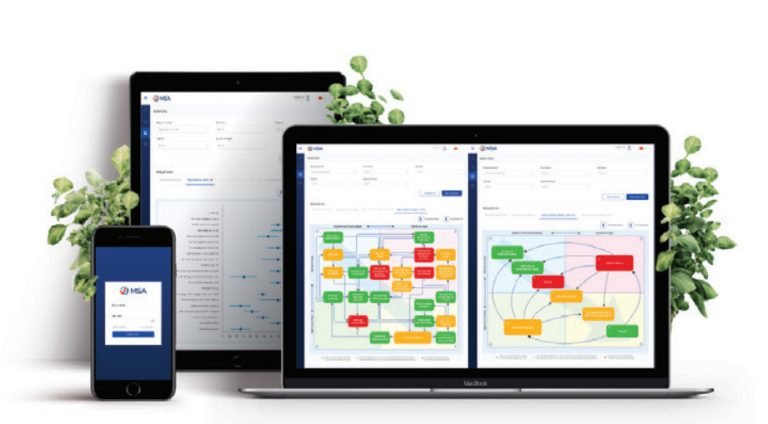
Crisis management in the context of the COVID-19 pandemic
The COVID-19 pandemic, with its heavy losses on the economy and businesses, has led to a great need for crisis management. It can be said that this is one of the rare times in the business cycle that managers have to face such a profound change.
To survive and maintain operations in the “new normal”, business leaders must have thoughts and take actions that go beyond the traditional way. Accordingly, Vietnamese businesses need to firmly grasp the principles and tools in crisis management strategies.
What is Crisis Management?
There are many definitions of crisis in the management industry, but in general, the concept of crisis is often summed up in 3 main points: Crisis is (1) a challenge to businesses, (2) it often occurs unexpectedly and causes substantial harm, and (3) requires only a limited period of time to resolve. As such, crisis management is about preparing resources and organizational structures to effectively face and resolve crises as well as recovering the business.
It can be said that a crisis is something no business wants, but it is inevitable in a constantly changing world. Hence, it is essential to prepare a clear strategy for crisis management, if not considered to be vital for business building.

Common categories of crisis in business
To make it easier to find a solution, initially, managers often take into account the warning signs and the speed of influence of the crisis. From this, crises can be divided into three main categories:
Creeping crises:
Definition: these are crises foreshadowed by a series of small events that decision makers don\’t view as part of a pattern.
For example: Những tình huống này có thể nhỏ lẻ nhưng chắc chắn sẽ ảnh hưởng tiêu cực tới danh tiếng của nhà hàng; và chỉ cần một tình huống biến tướng thành một sự cố, hay như cư dân mạng hay gọi là “phốt”, thì khó có thể cứu được.
Many restaurants do not have a formal customer service process, which makes employees confused when it comes to strange situations. These situations may be minor but will certainly negatively affect the restaurant\’s reputation; and if one small situation turns into an incident, it can be difficult to solve.
Slow-burn crises:
Definition: Slow-burn crises have some or a series of advance warning, although these problems haven’t caused any serious damage yet, it will eventually get worse over time. Business managers were aware of these warning signs but did not take appropriate measures to eliminate or remove them.
For example: The complaints of customers when dining at a restaurant were initially just words of mouth between diners and staff, but with the trend of restaurant reviews on social networks, many restaurants had to publicly apologize and even end the business due to merely negative comments from these slow crises.
Sudden crises:
Definition: These are crises that occur unexpectedly, often beyond the control of the business, such as natural disasters, riots, epidemics, and will affect more and more seriously if it is not resolved quickly.
For example: The most recent prominent example is the COVID-19 pandemic and its impact on the F&B industry in general. Social distance is something that no business owner can control, but there are restaurants that have resolved the crisis faster and almost immediately have good measures under this circumstance, while there are also many restaurants that have not been able to handle and as a result they cannot continue to operate their business.
Components of a crisis management strategy
Strategic thinking – “turn risk into opportunity”

There is no maze without a way out. When facing a crisis, managers need to keep their mind firm and find the business opportunity behind all the chaos and damage. The difference between an excellent crisis manager and others is strategic thinking. An excellent manager will look at the whole picture to find a way out for the business, while an average one will only solve the problem in the short run.
There is a great metaphor for comparing strategic thinking and traditional crisis management. For instance, With the same the scene, if using a narrow-angle camera lens (traditional crisis management), the photographer will only be able to focus on a very small part; while with a wide-angle camera lens (strategic thinking), the photographer will see the whole scene, as well as the composition and correlation between different things in the image.
Leadership
An organization with good crisis management needs a persistent leader. Leading an organization in the middle of a crisis takes more than a mere decision maker; Leaders need to show hope, optimism, vision, and at the same time maintain good public relations
More importantly, the leader has a great influence on preparing a crisis plan to avoid the potential situations discussed in the previous section.
Culture
Organizational culture plays an important role in determining the resilience of the organization. Bureaucracy, hierarchical culture, or having too many rules and regulations are the biggest barriers for organizations when facing a crisis. Conversely, small businesses with an overly liberal culture without a certain structure or process can also be negatively affected by the crisis.
Thus, to optimize business resilience, organizational culture needs to be flexible enough to respond to crises in a timely manner, spontaneously it also needs to have the discipline to deliver relevant processes and plans before these incidents occur.
Keep abreast of the context and make timely decisions
Having a team that is up to date with the latest social trends and situations is a key to business success before a crisis, especially for dealing with a potential crisis. More importantly, for small and medium-sized enterprises, this team can be the executive board, who will have to closely monitor all the employee\’s operational processes as well as customer feedback to promptly make judgments about the performance of the business. Being aware of the overall status quo can help a business avoid the unfortunate consequences of a potential crisis – which is seen as an avoidable crisis.
To summary, in order to have a effective crisis management strategy, business must:
- thoroughly prepare contingency plans, and at the same time be flexible enough to adapt to the constantly changing environment.
- have a powerful and assertive CEO and a strong executive board, which is able to inspire and have a positive spirit, as well as a clear vision and a practical mind to address the existing crisis.
- create an organizational culture which promotes discipline, at the same time fosters a spirit of creativity and innovation;
- Make decisions carefully and rationally, but at the same time be timely and willing to take risks when needed;
- Have a team that keeps abreast of the context, understands the overall status of the business and the general situation to calmly clarify the situation no matter how chaotic it is
MSA Software – Optimal tools to detect “flaw” and crisis management
A sudden crisis is easily recognized by the business, but not a slow-burn and latent crisis which initially appears as a very small flaw and will grow over time. In a context of the raging COVID pandemic and increasing social distance, this is the time for managers to look back at the business\’s operating system to promptly detect small flaws and find corresponding solutions.

Management System Assessment (MSA) software is a smart management tool developed from the Integrated Management System (IMS), and it is the technological know-how of the Malik Institute, Switzerland that has been used to give consultation to European and international businesses. MSA allows managers to assess all 24 essentials of their business growth, which not only help finding a “flaw” in management, but also determine the right leverage to invest resources intelligently, thereby making the accurate and timely decisions.
With the 24-core-component technological know-how, MSA can help business:
- COMPREHENSIVE ASSESSMENT: MSA detect and assess the essentials and the impact among elements in the system to find out the accurate solution for problems that business is facing
- TIME AND MONEY SAVING: Time and cost are greatly reduced compared to the conventional assessment survey process. Within 24 hours, managers can grasp the overall picture of the business, thereby quickly making decisions in the context of a crisis.
- ONLINE ASSESSMENT: the way of assessment is suitable with the context of social distancing during the Covid-19 period.
- SOLUTION OPTIMIZATION: business can come up with the suitable measures by themselves based on its visual results.
Register to use MSA software today: https://sleader.solidtech.vn/phan-mem-msa/
Consultancy contact: Ms. Huong – [email protected] / 0966255950
Synthesized and compiled: Institute of Strategic Leadership (Sleader)



